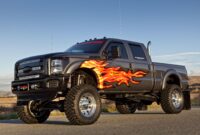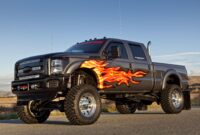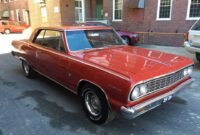U-Haul Open Trailer Rental Prices And Sizes: Your Comprehensive Guide to Efficient Hauling cars.truckstrend.com
Moving, decluttering, or tackling a large landscaping project often presents a common challenge: how to transport bulky, oversized, or numerous items safely and efficiently. For many, the answer lies in the versatility and affordability of U-Haul open trailers. Unlike their enclosed counterparts, open trailers offer unmatched flexibility for loading irregularly shaped objects, tall items, or materials that don’t require protection from the elements. Understanding the various sizes available and the associated rental prices is crucial for selecting the perfect solution for your specific hauling needs.
This comprehensive guide will delve into everything you need to know about U-Haul open trailer rentals, from the diverse range of sizes and their capacities to the factors influencing pricing, the rental process, and essential safety considerations. Whether you’re moving furniture, hauling debris, transporting a vehicle, or simply need extra space for an outdoor adventure, an open trailer from U-Haul could be your ideal partner.
U-Haul Open Trailer Rental Prices And Sizes: Your Comprehensive Guide to Efficient Hauling
Understanding U-Haul Open Trailers: Versatility for Every Haul
U-Haul open trailers are utility trailers designed without a roof or solid walls, typically featuring low sides or just a flat deck with a ramp. Their open design makes them exceptionally versatile, allowing for easy loading and unloading of items that might be too tall or wide for an enclosed trailer or truck.
Choosing an open trailer often comes down to several advantages:
- Cost-Effectiveness: Generally, open trailers are less expensive to rent than enclosed trailers or U-Haul trucks.
- Loading Flexibility: The open design accommodates items of varying heights and shapes, from refrigerators and large appliances to stacks of lumber, landscaping materials, or even vehicles.
- Ease of Access: With a lower deck height and often an integrated ramp, loading heavy items can be simpler and safer.
- Visibility: For experienced towers, the open nature can sometimes provide better visibility of the cargo and surroundings.
- Specific Uses: They are ideal for hauling waste, yard debris, construction materials, ATVs, motorcycles, and vehicles.

While they don’t offer protection from weather or security for valuables, for many hauling tasks, an open trailer provides the perfect balance of capacity, convenience, and cost.
U-Haul Open Trailer Sizes: Finding Your Perfect Fit
U-Haul offers a range of open trailers, each designed to cater to different types of loads and towing needs. Knowing the dimensions, capacities, and ideal uses for each is key to making an informed decision. It’s important to note that while U-Haul categorizes some as "utility trailers," others are specialized for vehicles.
Here are the primary open trailer sizes available from U-Haul:
1. 4′ x 7′ Utility Trailer
- Approximate Dimensions: 4 ft wide x 7 ft long (deck area)
- Deck Height: Approximately 18-20 inches
- Payload Capacity: Up to 1,770 lbs (check specific trailer for exact rating)
- Ramp: Yes, often a fold-down ramp at the rear.
- Ideal Uses: Perfect for small hauling jobs. Think about transporting a few pieces of furniture (dressers, small couches), appliances (washer/dryer), lawnmowers, ATVs, dirt bikes, or small amounts of landscaping materials. It’s compact and easy to maneuver.
2. 5′ x 8′ Utility Trailer
- Approximate Dimensions: 5 ft wide x 8 ft long (deck area)
- Deck Height: Approximately 18-20 inches
- Payload Capacity: Up to 1,890 lbs (check specific trailer for exact rating)
- Ramp: Yes, typically a fold-down ramp.
- Ideal Uses: A step up in size, offering more versatility. Great for larger furniture pieces, multiple appliances, several ATVs or motorcycles, larger landscaping projects, or hauling construction debris. It’s a popular choice for apartment moves or clearing out a garage.
3. 6′ x 12′ Utility Trailer
- Approximate Dimensions: 6 ft wide x 12 ft long (deck area)
- Deck Height: Approximately 18-20 inches
- Payload Capacity: Up to 2,670 lbs (check specific trailer for exact rating)
- Ramp: Yes, typically a fold-down ramp.
- Ideal Uses: The largest utility trailer, designed for substantial loads. Excellent for moving multiple rooms of furniture, large and heavy equipment, significant amounts of building materials, or even small vehicles like golf carts or riding lawnmowers. It offers considerable space for bigger projects.
4. Motorcycle Trailer (Often 5′ x 9′)
- Approximate Dimensions: Around 5 ft wide x 9 ft long (deck area)
- Payload Capacity: Varies, typically designed for 1-2 motorcycles (around 900 lbs max).
- Ramp: Yes, specifically designed for loading motorcycles.
- Features: Often includes a wheel chock or tie-down points optimized for bikes.
- Ideal Uses: Exclusively designed for safely transporting motorcycles, scooters, or dirt bikes.
5. Auto Transport
- Approximate Dimensions: Varies, but typically a flat deck around 6’8" to 7′ wide x 14′ long (deck area).
- Payload Capacity: Up to 5,290 lbs (for the vehicle being transported).
- Ramp: Yes, integrated loading ramps.
- Features: Heavy-duty, low-profile trailer with integrated ramps, wheel straps, and safety chains designed specifically for towing another vehicle.
- Ideal Uses: Transporting cars, trucks, SUVs, or vans. Essential for cross-country moves where you need to tow a secondary vehicle.
6. Tow Dolly
- Approximate Dimensions: Not a full trailer; two wheels with a platform for the front wheels of a vehicle.
- Payload Capacity: Up to 3,900 lbs (for the towed vehicle’s front axle weight).
- Ramp: Yes, integrated loading ramps.
- Features: Lighter and more compact than an auto transport, only lifts the front wheels of the towed vehicle off the ground.
- Ideal Uses: Towing front-wheel-drive vehicles, or rear-wheel-drive vehicles with the drive shaft disconnected. More economical for shorter distances or lighter vehicles.
U-Haul Open Trailer Rental Prices: What to Expect
U-Haul trailer rental prices are dynamic and can vary significantly based on several factors. Understanding these variables will help you estimate your costs and avoid surprises.
Factors Influencing Price:
- Trailer Size: Larger trailers naturally cost more to rent than smaller ones due to their higher capacity and construction.
- Rental Duration: U-Haul typically charges a daily rate. While you can often rent for multiple days, the price accumulates daily. There are no fixed weekly or monthly rates for trailers; you simply pay the daily rate for each day.
- One-Way vs. In-Town Rental:
- In-Town Rental: This is generally the most affordable option. You pick up and return the trailer to the same U-Haul location. These rates are typically flat daily fees.
- One-Way Rental: If you need to pick up a trailer in one city and drop it off in another, it’s considered a one-way rental. These prices are significantly higher and are often calculated based on distance, duration, and demand between the two locations. Not all open trailers are available for one-way rentals (e.g., utility trailers often aren’t, while auto transports usually are).
- Location: Rental rates can fluctuate based on supply and demand at specific U-Haul centers or in different geographic regions. High-demand areas might have slightly higher prices.
- Time of Year/Day of Week: Peak moving seasons (summer, end of month) or weekends might see slightly higher demand, potentially affecting availability and pricing.
- Additional Equipment: If you need to rent a hitch, wiring harness, or other towing accessories from U-Haul, these will be extra costs.
- Damage Coverage: U-Haul offers optional damage coverage plans (e.g., Safetow®). While not mandatory, it’s highly recommended and adds to the total cost.
- Taxes and Fees: Local taxes, environmental fees, and other administrative charges will be added to the base rental rate.
General Pricing Structure (Estimates – Always verify current rates with U-Haul):
U-Haul’s in-town utility trailer rentals are typically very affordable, often starting from around $14.95 to $29.95 per day. Auto transports and tow dollies, especially for one-way moves, can range from $70 to several hundred dollars depending on distance and duration.
U-Haul Open Trailer Rental Price and Size Comparison Table
This table provides estimated daily in-town rental prices and key specifications. Prices are subject to change and vary by location, demand, and specific rental duration. Always check the official U-Haul website or contact a local center for the most accurate quote.
| Trailer Type/Size | Approx. Dimensions (L x W) | Payload Capacity (Approx.) | Ideal Use Cases | Approx. Daily In-Town Rate | One-Way Availability |
|---|---|---|---|---|---|
| 4′ x 7′ Utility | 7′ x 4′ | 1,770 lbs | Small furniture, appliances, ATV, dirt bike, yard waste. | $14.95 – $18.95 | Generally No |
| 5′ x 8′ Utility | 8′ x 5′ | 1,890 lbs | Furniture, multiple appliances, multiple ATVs/motorcycles, medium debris. | $19.95 – $24.95 | Generally No |
| 6′ x 12′ Utility | 12′ x 6′ | 2,670 lbs | Large furniture loads, significant debris, small vehicles (golf carts, riding mowers). | $24.95 – $29.95 | Generally No |
| Motorcycle Trailer | Approx. 9′ x 5′ | 900 lbs | 1-2 motorcycles, scooters, dirt bikes. | $24.95 – $29.95 | Generally No |
| Auto Transport | Approx. 14′ x 6’8" (deck) | 5,290 lbs (vehicle weight) | Cars, trucks, SUVs, vans (full vehicle transport). | $60 – $80 (In-Town) / Highly Variable (One-Way) | Yes |
| Tow Dolly | N/A (two-wheel platform) | 3,900 lbs (front axle) | Front-wheel drive vehicles, or RWD with disconnected driveshaft (partial vehicle transport). | $40 – $55 (In-Town) / Highly Variable (One-Way) | Yes |
The Rental Process: A Step-by-Step Guide
Renting an open trailer from U-Haul is a straightforward process, whether you do it online or in person.
- Reservation:
- Online: The easiest way is to visit U-Haul’s website, enter your desired pick-up and drop-off locations, dates, and select the trailer size you need. The system will show availability and pricing.
- Phone/In-Person: You can also call your local U-Haul center or visit in person to make a reservation.
- Requirements:
- Valid Driver’s License: You’ll need a current, valid driver’s license.
- Tow Vehicle: Your vehicle must be equipped with a proper hitch receiver, hitch ball (U-Haul can provide or you can use your own, ensuring it’s the correct size), and functional wiring for trailer lights.
- Towing Capacity: Crucially, your tow vehicle must meet or exceed the gross vehicle weight rating (GVWR) of the loaded trailer. U-Haul’s system will typically verify your vehicle’s towing capacity during the reservation process.
- Pick-up:
- At the U-Haul center, staff will verify your reservation and vehicle.
- They will conduct a safety check of your vehicle’s hitch, wiring, and tires.
- A U-Haul representative will usually assist in hooking up the trailer, connecting safety chains, and testing the lights.
- You’ll complete the rental agreement and pay.
- During Rental: Drive safely, adhering to speed limits for trailers, and ensure your load is properly secured.
- Return: Return the trailer to the agreed-upon U-Haul location by the specified time. Ensure it’s clean and free of excessive debris.
Important Considerations and Practical Advice for Open Trailer Rentals
Renting an open trailer is more than just picking up a piece of equipment; it involves understanding safe towing practices and making informed decisions.
1. Towing Vehicle Compatibility is Paramount
This is the most critical factor. Your tow vehicle must be capable of safely handling the weight of the loaded trailer.
- Hitch Type: Ensure your vehicle has a proper receiver hitch.
- Hitch Ball Size: U-Haul trailers typically use a 1-7/8" or 2" ball. Verify the correct size for your rented trailer.
- Wiring: Your vehicle needs a working 4-flat or 7-way electrical connector for trailer lights (brake lights, turn signals, running lights). U-Haul sells adapters if needed.
- Towing Capacity: Consult your vehicle’s owner’s manual for its maximum towing capacity and tongue weight limits. Never exceed these. U-Haul’s system will help verify this.
2. Weight Distribution and Loading
Proper loading is essential for safe towing and preventing trailer sway.
- Tongue Weight: Aim for 10-15% of the total loaded trailer weight to be on the tongue (the part that connects to your hitch). Too little can cause sway; too much can overload your vehicle’s rear axle.
- Load Evenly: Distribute weight evenly from side to side.
- Center of Gravity: Place heavier items over or slightly forward of the trailer’s axle(s).
- Secure Everything: Use strong ropes, straps, or chains to secure all items to the trailer. Even seemingly stable items can shift during transit. Use a tarp for loose materials to prevent debris from flying out.
3. Safety Tips While Driving
- Pre-Trip Inspection: Before every drive, check tire pressure on both the tow vehicle and trailer, lights, hitch connection, and safety chains.
- Increased Braking Distance: Your stopping distance will be significantly longer with a trailer. Maintain ample following distance.
- Wider Turns: Account for the trailer’s length and swing when making turns, especially right turns.
- Reduced Speed: Drive slower than usual, especially on highways, in windy conditions, or on uneven terrain.
- Mirror Extensions: Consider using mirror extensions for better rear visibility, especially with wider trailers.
- Avoid Overloading: Never exceed the trailer’s or your vehicle’s weight limits.
4. Insurance/Damage Coverage
U-Haul offers optional damage coverage plans like Safetow®. While your personal auto insurance might cover some trailer damage, it’s crucial to check your policy. U-Haul’s coverage can provide peace of mind by protecting you from repair costs if the trailer is damaged while in your possession.
5. One-Way vs. In-Town Rentals
- In-Town: Best for local moves or projects where you can return the trailer to the same location. Most utility trailers are for in-town use only.
- One-Way: Necessary for cross-country moves. Auto Transports and Tow Dollies are generally available for one-way trips, though at a higher cost. Plan this well in advance.
6. Accessories and Supplies
Don’t forget the essentials for a smooth haul:
- Ropes/Straps: Essential for securing your load.
- Tarps: To cover open loads, protecting them from weather and preventing debris from flying out.
- Moving Blankets/Pads: To protect furniture and appliances from scratches and dings.
- Gloves: For handling items and hitching.
Frequently Asked Questions (FAQ)
Q: Do I need a special license to tow a U-Haul open trailer?
A: In most U.S. states and Canadian provinces, a standard driver’s license is sufficient for towing U-Haul trailers, as long as the combined weight of your vehicle and the loaded trailer doesn’t exceed certain commercial limits (which is rare for typical U-Haul setups). Always check your local Department of Motor Vehicles (DMV) regulations.
Q: Can I rent an open utility trailer for one-way trips?
A: Generally, no. U-Haul utility trailers (4’x7′, 5’x8′, 6’x12′) are primarily for in-town use, meaning you must return them to the same location. Auto transports and tow dollies are typically available for one-way rentals.
Q: What kind of hitch do I need for a U-Haul open trailer?
A: You’ll need a vehicle equipped with a hitch receiver and a hitch ball of the correct size (usually 1-7/8" or 2" for U-Haul trailers). Your vehicle also needs proper wiring for trailer lights. U-Haul can install hitches and wiring if your vehicle isn’t equipped.
Q: Do U-Haul open trailers come with ramps?
A: Yes, most U-Haul utility trailers (4’x7′, 5’x8′, 6’x12′), motorcycle trailers, and auto transports come with integrated fold-down or slide-out ramps for easy loading.
Q: What if my vehicle doesn’t have a hitch or wiring?
A: U-Haul offers hitch installation services and sells wiring kits at their locations. It’s best to get this done in advance of your rental.
Q: Is insurance required for U-Haul open trailers?
A: While not legally required by U-Haul, damage coverage (like Safetow®) is highly recommended. Your personal auto insurance policy may or may not cover damage to a rented trailer, so it’s essential to verify your coverage before renting.
Q: Can I tow a car on a utility trailer (e.g., 6’x12′)?
A: No. Utility trailers are not designed or rated for towing passenger vehicles. You must use a U-Haul Auto Transport or Tow Dolly specifically designed for vehicle transport. Using a utility trailer for a car is unsafe and strictly prohibited by U-Haul.
Conclusion
U-Haul open trailers provide a flexible, cost-effective, and practical solution for a wide array of hauling and moving needs. From compact utility trailers ideal for small projects to heavy-duty auto transports for cross-country vehicle moves, there’s a size and type to fit almost every requirement.
By understanding the various dimensions, payload capacities, and pricing structures, you can confidently select the right trailer for your task. Remember to prioritize safety by ensuring your tow vehicle is compatible, loading the trailer correctly, and practicing defensive driving techniques. With proper planning and adherence to safety guidelines, your U-Haul open trailer rental can transform a daunting hauling challenge into a manageable and successful endeavor. Always verify the most current pricing and availability directly with U-Haul for the most accurate information for your specific rental.



